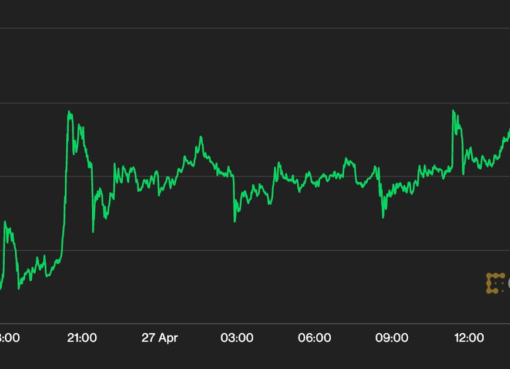The final quarter of 2020 saw the launch of a precedent-setting lawsuit by the United States Securities and Exchange Commission against Ripple Labs, CEO Bradley Garlinghouse and co-founder Christian A. Larsen. The allegation: raising north of $1 billion in 2013 through the unregistered sale of a purported security, XRP (XRP).
The implications of Ripple’s bold choice to challenge the lawsuit in court radiate far beyond the company. The judgment could become the Rosetta Stone for determining whether other cryptocurrencies are deemed securities. A Ripple victory could fuel a new era of acceptance, investment and confidence in digital assets.
Defeat, on the other hand, could hinder mainstream adoption, prompt the SEC to pursue similar cases, increase market volatility, and drain talent from the United States.
Related: SEC charges against Binance and Coinbase are terrible for DeFi
The timing of this potential landmark decision dovetails with a season of intense scrutiny by the SEC under the leadership of Chairman Gary Gensler.
Ripple and XRP in the eye of the storm
Ripple, the payment company behind XRP, introduced the cryptocurrency token in 2013. Designed to facilitate fast, low-cost cross-border transactions, XRP stands as a potential replacement for the existing SWIFT system.
Ripple has entrenched its value in the financial landscape by establishing partnerships with top-tier institutions, such as American Express, Santander and MoneyGram, and processed transactions exceeding $10 billion in 2021 alone.
The SEC’s allegation revolves around Ripple’s purported unregistered sale of XRP, an investment contract or “security” by their definition. Ripple’s defense, however, asserts that XRP doesn’t pass the Howey test — the measure of an investment contract — and, therefore, cannot be considered a security.
The court case, then, hinges on this perennial question: Is XRP a security?
All eyes on the Hinman documents
The turbulent dispute between the SEC and Ripple is expected to conclude in September. Before then, the Ripple community’s attention will be on June 13, when the Hinman materials are unsealed, which could have a significant implication on the verdict.
The emails wont change the Howey analysis but they will likely show the difficulty in applying 1930s/40s precedent to modern day technology. The emails will likely help @coinbase and @ripple in the Court of Public Opinion and hopefully drive bipartisan efforts in Congress. https://t.co/DfpZaLgw4O
— John E Deaton (@JohnEDeaton1) June 11, 2023
These documents refer to a 2018 speech by SEC Director William Hinman, during which he provided guidance on how the SEC might analyze whether a particular cryptocurrency should be considered a security. This guidance became significant in the Ripple case, as Ripple’s defense argued that Hinman’s statements bred confusion, leading market participants, including Ripple, to believe that XRP was not a security.
Cue a desperate scramble by the SEC in December 2022 to seal said documents and shield them from public scrutiny — documents that Ripple believes are pivotal to its victory against the regulator.
Implications of the verdict
This face-off between Ripple and SEC transcends the future of XRP. It’s a high-stakes drama that could very well be the defining moment for the cryptocurrency industry. In 2022, the SEC’s Gensler stated that “many [cryptocurrencies] are securities,” signaling the regulator’s intent to scrutinize more digital assets.
The implications fall into four main categories.
- Adoption and Innovation: A Ripple win could foster increased consumer and institutional trust in digital assets. It could spur investment in the space, emboldening enterprises to create groundbreaking products and services within a clarified regulatory framework. A loss could hinder mainstream acceptance as regulatory uncertainties continue to deter potential participants.
- Legal Precedent: If Ripple wins, it could strengthen the argument against categorizing cryptocurrencies as securities, providing the industry with greater legal clarity and a solid footing for future growth. If Ripple loses, it may prompt further SEC investigations into potential securities violations. We’re already witnessing this trend with the case against Coinbase, Binance and Tron founder Justin Sun.
- Market Volatility: A Ripple victory could boost investor confidence, potentially inflating the value of digital assets, whereas a loss might spark market volatility, leading to a sell-off of XRP and other digital assets perceived as securities.
- Talent Migration: Should the SEC emerge victorious, it may spur a talent exodus out of the U.S. toward countries with greater regulatory clarity; a trend that’s already noticeable, with Ripple themselves actively looking to make the leap.
The end is near
Attorney John Deaton, founder of CryptoLaw, has been a staunch advocate for Ripple against the SEC. In a June 3 interview, he predicted a 25% chance of District Judge Analisa Torres ruling in favor of Ripple and a 50% chance of a “middle ground” verdict. But with Binance and Coinbase now on the SEC guillotine, these predictions might need to be reconsidered.
Garlinghouse remains optimistic about the verdict but, ultimately, “betrayed” by a regulator who’s given them conflicting guidance. A sentiment that’s been echoed across the crypto landscape in the United States.
Related: Elizabeth Warren wants the police at your door in 2024
The U.S. has long been the go-to destination for ambitious startups, the home of breakthrough innovations — a global leader across multiple industries. But the U.S.’ approach toward progressing the crypto industry goes against these historical precedents of providing supportive regulatory environments and promoting growth.
With such high stakes for investor confidence, legal clarity and global talent migration, the SEC v. Ripple case is a landmark battle that could shape the future of the cryptocurrency landscape in the United States.
Hamilton Keats is CEO and co-founder of Krayon Digital, a provider of MPC-based digital asset wallets. Prior to building Web3 infrastructure with Krayon, Hamilton co-founded Platform One, a London-based wealth management platform, and worked at HSBC and DVB Bank. He holds a B.Sc. in physics from the Imperial College London.
Its outcome could either foster a new era of innovation and mainstream acceptance of digital assets or unleash a wave of market turbulence and an exodus of U.S.-based crypto firms seeking more favorable jurisdictions with clearer guidelines.
This article is for general information purposes and is not intended to be and should not be taken as legal or investment advice. The views, thoughts and opinions expressed here are the author’s alone and do not necessarily reflect or represent the views and opinions of Cointelegraph.




